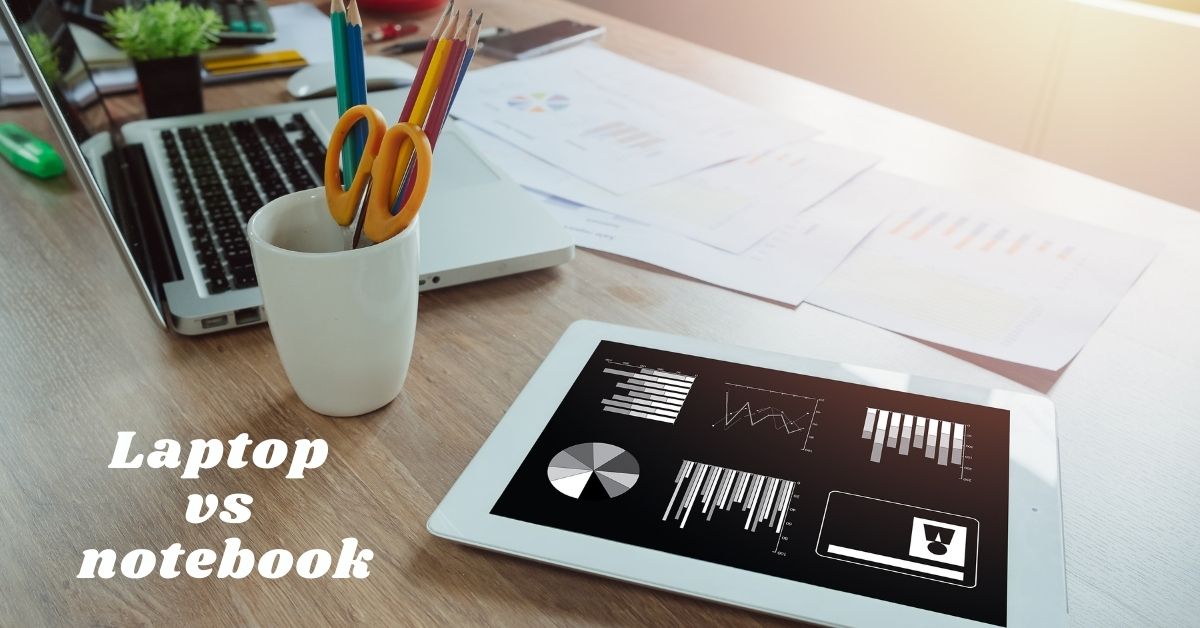Laptop or notebook computers are two modern terms invented by the people of modern times. The words do not resemble anything from the past. Like smartphones and Apple iPhone or iPad, these two are also very new terms invented to define the devices they relate to. It is widespread to think of laptops and notebooks as the same breed, and they are not. As new users of tech devices, we often make the mistake of thinking that a notebook and a laptop are the same in terms of build and functionality. We confuse ourselves and confuse others with our confusing understanding and explanations. In this article, we will try to resolve the ‘laptop vs notebook: what is the difference’ question and give you a proper introduction to both of the devices.
Contents

We are going to talk about the nitty-gritty parts of computer history. If we want, we can talk about many pages about this particular history. As time is short, we will keep it short too.
ENIAC was the first-ever machine that we can call a computer. Vacuum tubes were used in this machine – 18000 of them. It sat on a floor space of about 1800 sqr. Feet. In short, this computer was as stationary as a house, and it was nothing like what our personal desktop computers look like.
It was not portable. It was impossible for people to use it for personal use for education, business, and offices. So, after this first computer, there was significant demand for this computer but in a more compact form and with mobility. As a result, the Osborne I came out. With its invention, a new era of portable computing was ushered to the mainstream people. Since then, people have kept demanding more from this form factor.
The next entry to the line of portable computing was the super compact NEC UltraLite of 1988. This was the first of what we call a ‘notebook’ in our present time.
So, both laptop and notebook’s basic idea was that these should be very compact and portable and can be used even without a constant direct power connection. Both have battery support now. But there is a very fine line between these two form factors. With the more compact design of CPU and Memories, we can no longer differentiate between these two. They have almost become the same. But for argument’s sake, we will try to find a few differences between laptop vs notebook.
We are talking about ‘laptop vs notebook: what is the difference.’ In the present world, portability is everything. If you cannot carry a device with you, you will not buy it. As a result, even smartwatches come with a connection with mobile phones. You can receive calls from them now. So, what I am trying to say is that portability is everything. With this ‘portability in mind, the CPU, GPU, and memory manufacturers are coming up with newer, sleeker, and slimmer components for our devices; and based on that, we can now have thinner designs from laptop computer manufacturers.
Now notebooks are supposed to be more portable than laptops because they are more compact than the laptops, lighter, and slimmer than the laptops as there is no optical drive like DVD RW or Blu-ray Drive.

Laptops are now becoming seriously overpowered. Remember that people love the portability. Desktops are potent, and people do heavy load work like 3D animation or modeling, Video editing and rendering, game design, and many more heavy-duty works. But the problem is that desktops are not moveable and remain stationary. But people are always moving.
Now just for that reason, people keep demanding laptops that can rival desktops; and eventually, laptops as powerful and as muscular as desktops are coming out. But when you have so much power inside a laptop, it becomes bulky and power-hungry. You cannot move with this type of laptop everywhere, and you wish you had a lighter and slimmer device with less power for just some more lightweight web browsing, mailing, watching movies on Netflix while relaxing on your bed.
You wish your device had a lot of hours as the battery backup, and you could watch a few films or stream YouTube videos or videos from other sites. This demand was an opportunity for manufacturers to bring out ‘notebook’ computers. They are smaller in size. They are not as powerful as laptops. They are just ok to have some entertainment, browsing, text editing, etc. They also have a lot of battery support.

In both laptop and notebook form factors, the CPU, memory, and display type bring many varieties. Usually, the lesser the processing power, RAM, Disk, and display size, the lesser that cost.
If you buy CPUs like M1 from Apple, Core i9 from Intel, and Ryzen 7 from AMD, your laptop will be expensive. If the GPU is dedicated and you want more RAM and the latest M.2 NVMe PCIe SSD along with a more prominent Touch display – you need to spend a few thousand dollars. Besides, the brand name will also cost you money. The more famous the brand, the costlier will their laptops or notebooks be.
You like lesser options; you can spend less money on your device. Depending on your choice of Brands and CPU, your notebook can be even more expensive than a laptop. For example, notebooks with Apple M1 chips.
As I have said earlier, on your laptop, you can do almost everything you do on your desktop. You can play games with high graphics, do animation work, 3D rendering, video editing, streaming, and many more.
But on notebooks, you do not have these options. As their ability is limited, they usually can only go up to video streaming. You cannot play heavy games or do video editing or rendering on notebooks.
There are many laptop or notebook manufacturers. Among them, Dell, HP, Asus, Samsung, Microsoft, Apple, Lenovo, MSI, Gigabyte, etc., are famous. There are also some unknown Chinese brands.
Overall, when it comes to the ‘laptop vs notebook: what is the difference’ question – the hardware ability and the cost make the main difference. Best hardware will ask for a higher price, and the less powerful hardware will ask for a lesser price. This is the main difference. Apart from this, there is also the portability and battery life on the table of discussion. It is up to you to decide which device will be a laptop and which one will be a notebook in your eyes.
 |
 |
 |
 |
Check These Out